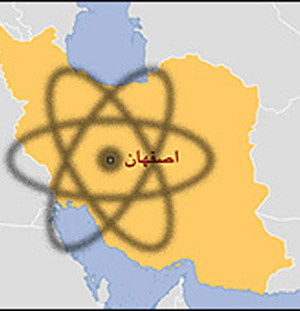The Promising Signal of Iran’s Nuclear Advance

Interview by Mina Ali Eslam
Manufacturing faster centrifuges is a breakthrough that demonstrates Iran’s ability to produce nuclear fuel more efficiently. Interview with Dr. Sadegh Rabbani, nuclear expert and former vice president of Iran’s Atomic Energy Organization.
Exactly what are Iran’s new nuclear achievements?
Even before Iran’s official announcement, foreign media had pointed to Iran’s testing a new generation of centrifuges. The new centrifuges are definitely faster and more efficient. Another achievement was Iran’s "nuclear fuel package", one stage of the fuel generation process.
As you may know, uranium enrichment is a complex process, the acme in nuclear technology. Generating heavy water is also as important but other stages are more of a propagandistic use. Generating the fuel package is not that much of a complex process. Enriched uranium will processed into nuclear fuel pellets and then stacked into fuel rods.
What is the message sent to the world through these achievements?
Technology-wise, our latest advances aren’t that remarkable. Enrichment is what truly counts. Other processes have propagandistic use. Of course manufacturing faster centrifuges shows that Iran can generate nuclear fuel more efficiently. A subtle point is that converting enriched uranium into other fuel packages removes all concerns about Iran’s tendency to built nuclear weapons. Iran wouldn’t run this process if it aimed to build nuclear weapons.
This can be a promising signal for West. It shows that Iran is committed to peaceful use of nuclear technology. Of course, it all depends on West it its ready to understand the message.
How will United States’ direct participation affect Iran and Group Six’s future talks?
United States’ mediated presence in nuclear negotiations had downgraded Europe’s political weight. In fact, U.S. had kept back the three European countries from independent decision. So these countries wanted America to have direct participation in the talks so that whatever the conclusions, they would be regarded as the final decision. Two-stage process of decision making had become time-consuming.
United States’ presence in negotiations could be also crucial and beneficial for Iran, since in case of disagreement with Europe, Iran can get along with United States and vice versa. So the direct participation is a positive turn, though there is a long way to settlement of disputes.

